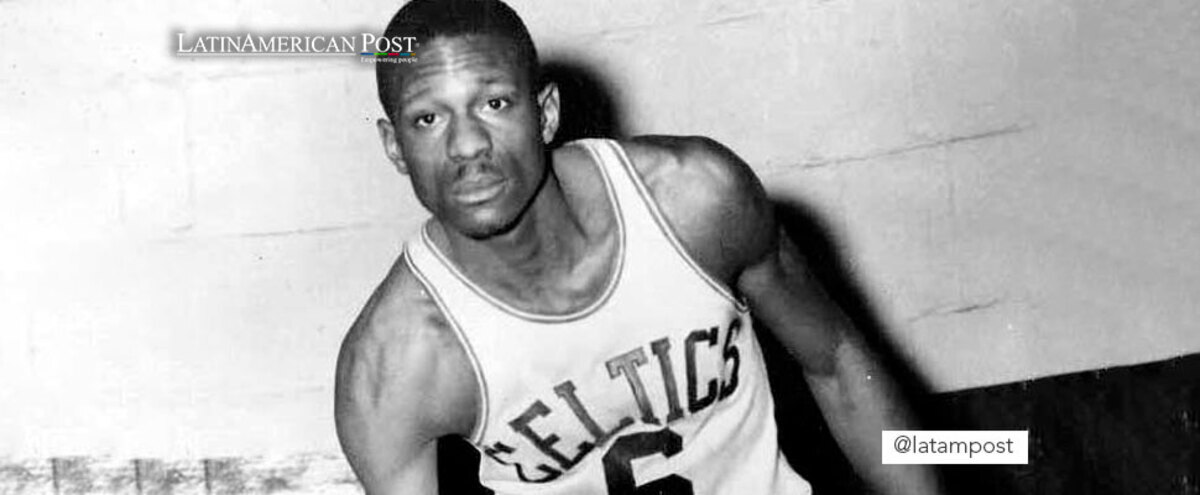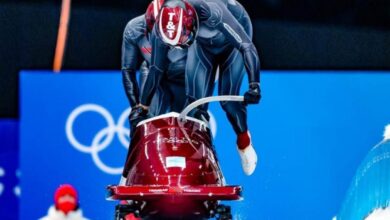Bill Russell: Remembering His Racial Struggle Beyond the Courts
Bill Rusell Leaves a Legacy of Fighting for Social Equality That is as Important as his Legacy as an NBA Legend.

Photo: Public Domain
LatinAmerican Post| Juan Manuel Londoño
Listen to this article
Leer en español: Bill Russell: recordando su lucha racial más allá de las canchas
Last Sunday, Bill Rusell, eleven-time NBA champion and one of the undisputed legends of this sport, passed away. One of the most decorated athletes in American history, Rusell elevated the game of basketball in his day and established a winning dynasty that has not seen its equal in his league to this day.
However, beyond his achievements as an athlete, Rusell is also historically recognized for his fight against racism.
Playing with a city against
As the first black man to become an NBA superstar, Russell fought a lifelong battle against racism. He himself commented in life that, although the Celtics organization supported him throughout his career and never made racist attacks against him, the story was very different with the fans and inhabitants of the city of Boston. So much so that in a letter to his daughter he stated that “I played for the Celtics, period. I wasn't playing for Boston."
Russell noted that during his professional career, he received constant insults from Bostonians at his games, who called him "ape", "baboon" and other racial slurs. On one occasion, after returning from vacation to his suburban Boston home, he found his home destroyed, with racially charged graffiti on the walls.
Also read: How is global warming affecting golf courses?
Due to these mistreatments, Bill rejected his inclusion in the Hall of Fame until 2019, the date on which black pioneers who Russell felt "opened the path for my career" were included in this recognition. He also refused to grant autographs for many years as a form of protest, a situation that, surprisingly, put him in the crosshairs of organizations such as the FBI. Much controversy has been caused by the document that the FBI maintained on Russell, which among other things calls him "an arrogant black man who refuses to sign autographs for white children."
A life of struggle
Determined to create a better future for generations to come, Russell often spent time off the pitch fighting for racial equality. Being part of the "black power" movement, in 1967, he was one of the athletes who was present and supporting Muhammed Ali's decision to avoid the draft for the Vietnam War.
"We dumbly thrill athletes and make them heroes because they can hit a ball or catch it," Russell said at the time. "The only athletes we should bother giving particular importance to are those like [Muhammad] Ali, whom we can admire for themselves and not for their incidental athletic abilities."
This attitude prevailed even in his later years. In 2017, he was one of the athletes who supported the national anthem protests at NFL games, started by Colin Kaepernick. Let us remember that these protests sought to draw attention to the disproportionate violence against African Americans by the police.
Russell also supported the Milwaukee Bucks' 2020 decision to protest a game, after police opened fire on a black man in Wisconsin. On that occasion, he recalled that he was one of the first athletes to reject a game for racial reasons, when in 1961 his black teammates were denied service in a hotel cafeteria.




